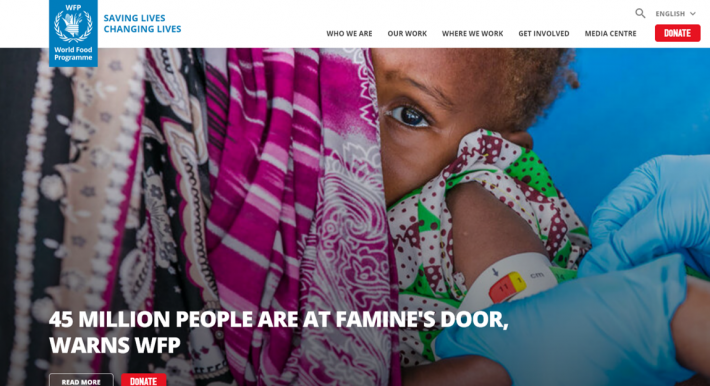Jan. 5 (EIRNS)—Today a 30-second video was issued by David Beasley, Executive Director of the World Food Program (WFP) on Afghanistan, showing both hungry children, and also food delivery, with the text: “The situation in Afghanistan may have faded from the front page, but don’t let Afghan families fade from your mind. 8.7 million people are on the brink of starvation. Read that again: 8.7 million people are on the brink of starvation. What we do today has the power to change the fate of more than 23 million people. Act now.” Beasley’s immediate message, tweeted with the video, is for WFP donations. He wrote, “The Year 2021 has been a catastrophic year for the people of Afghanistan. Millions of Afghans are counting on WFP for life-saving food this winter. Help us help them.”
However, Beasley’s imperative about keeping in our minds what is important about Afghanistan—the value of human life—is what applies across the board to the crises we now face. Think it through. We are capable of mobilizing the physical resources and logistics to stop mass death in Afghanistan. It takes concerted action. The Schiller Institute will host another conference in mid-January (date to be determined soon) on action in Afghanistan.
Look at the pandemic in the same way. The same principle applies. In China, concerted action has kept the COVID-19 case rate and death toll very low, with massive testing and contact tracing, as well as localized lockdowns. In contrast, the pandemic virus is now surging in multiple locations elsewhere in Asia, in the trans-Atlantic, the Americas and Africa. On Jan. 4, the daily case count was 2.594 million cases officially reported worldwide (a big undercount), of which 35%, 885,500 cases, were in the United States alone.
The Schiller Institute/Committee for the Coincidence of Opposites is preparing an emergency statement of action points required to save lives and roll back the virus. The outline and principle are the same as in prior statements, but with measures specific to the unfolding events. (Prior statements: “LaRouche’s ‘Apollo Mission’ To Defeat the Global Pandemic: Build a World Health System Now,” April 11, 2020; ‘Global Health Security Requires Medical Infrastructure in Every Country—Major Industrial Nations Must Collaborate Now!” May 14, 2021, submitted to the Global Health Summit in Rome; “Open Letter to Virologists and Medical Experts Around the World To Address the COVID-19 Pandemic,” by former Surgeon General Joycelyn Elders, Nov. 23, 2021; and others.)
There are initiatives in the needed direction. Yesterday, for example, the importance of rapidly expanding medical staff, by calling back into action retirees, was stressed by Maryland Gov. Larry Hogan, when he declared an official state of emergency. There are many measures that are clearly bipartisan and nonpartisan, overriding the non-stop partisan shouting going on in the U.S. For example, use the Defense Production Act, as was done under Trump, to get all needed items, from material for construction of hospitals and medical materials, to COVID-19 therapeutics in quantity. Ramp up production of antiviral medications and all kinds of monoclonal antibodies, currently scarce.
Mobilizing for emergency action and a world health platform, with a focus on Afghanistan, are entirely consistent with the drive to stop the nuclear war danger. The meetings set for next week, on the initiative of Russia, are critical for that: Jan. 10 in Geneva, between the U.S. and Russia; Jan. 12 in Brussels, between NATO and Russia; and Jan. 13 in Vienna, with Russia and the OSCE. But there are countermoves underway.
Circulate everywhere the Schiller Institute Memorandum, Are We Sleepwalking into Thermonuclear World War III?

















